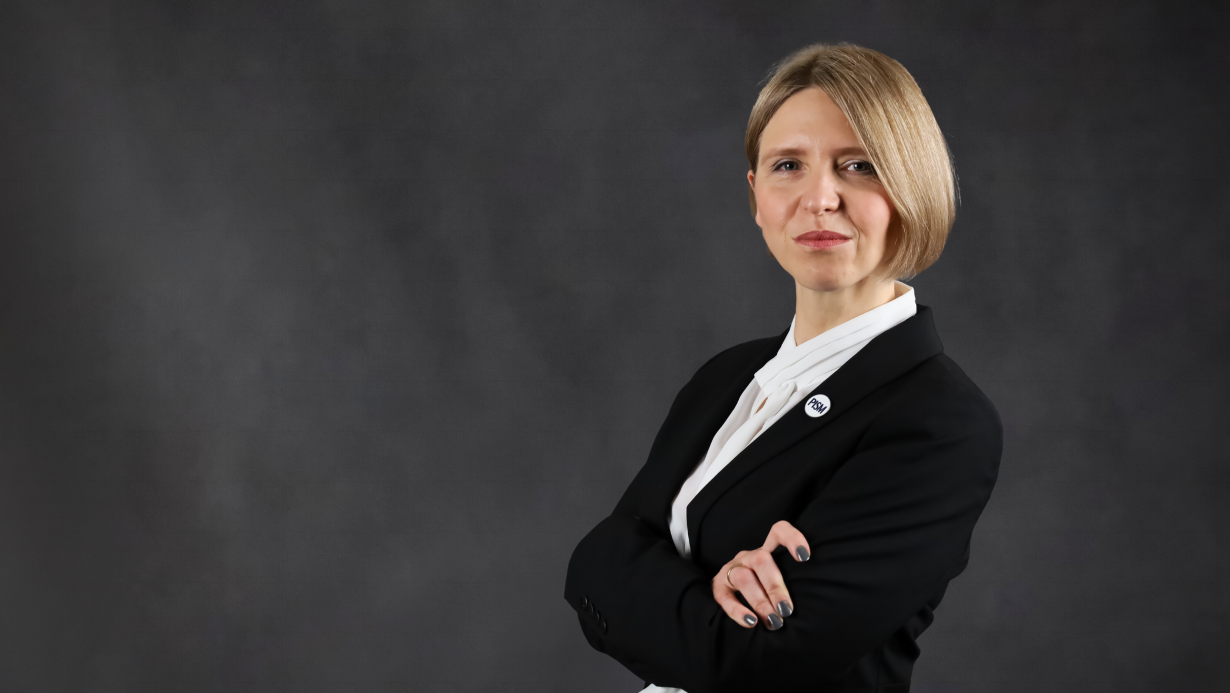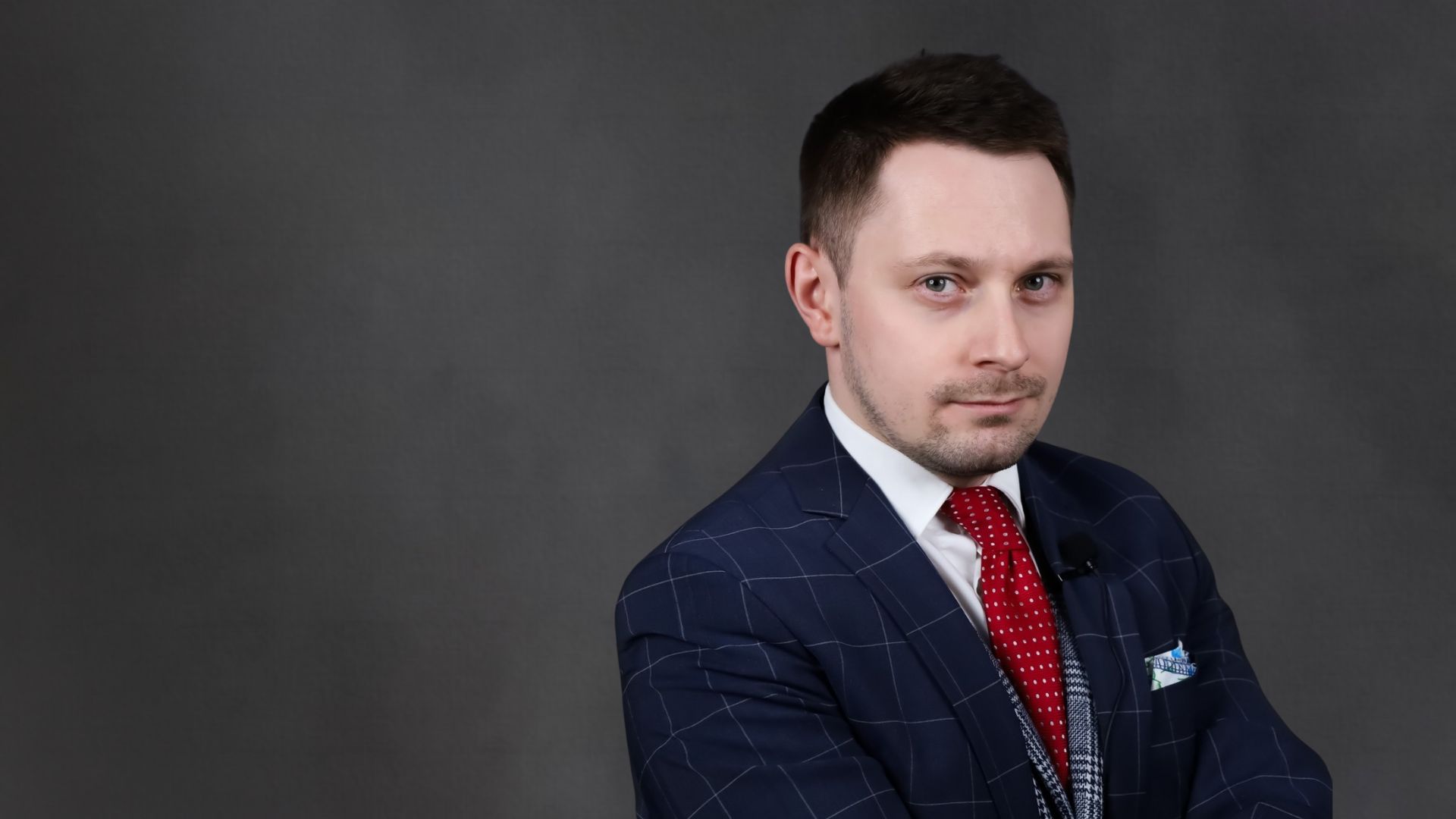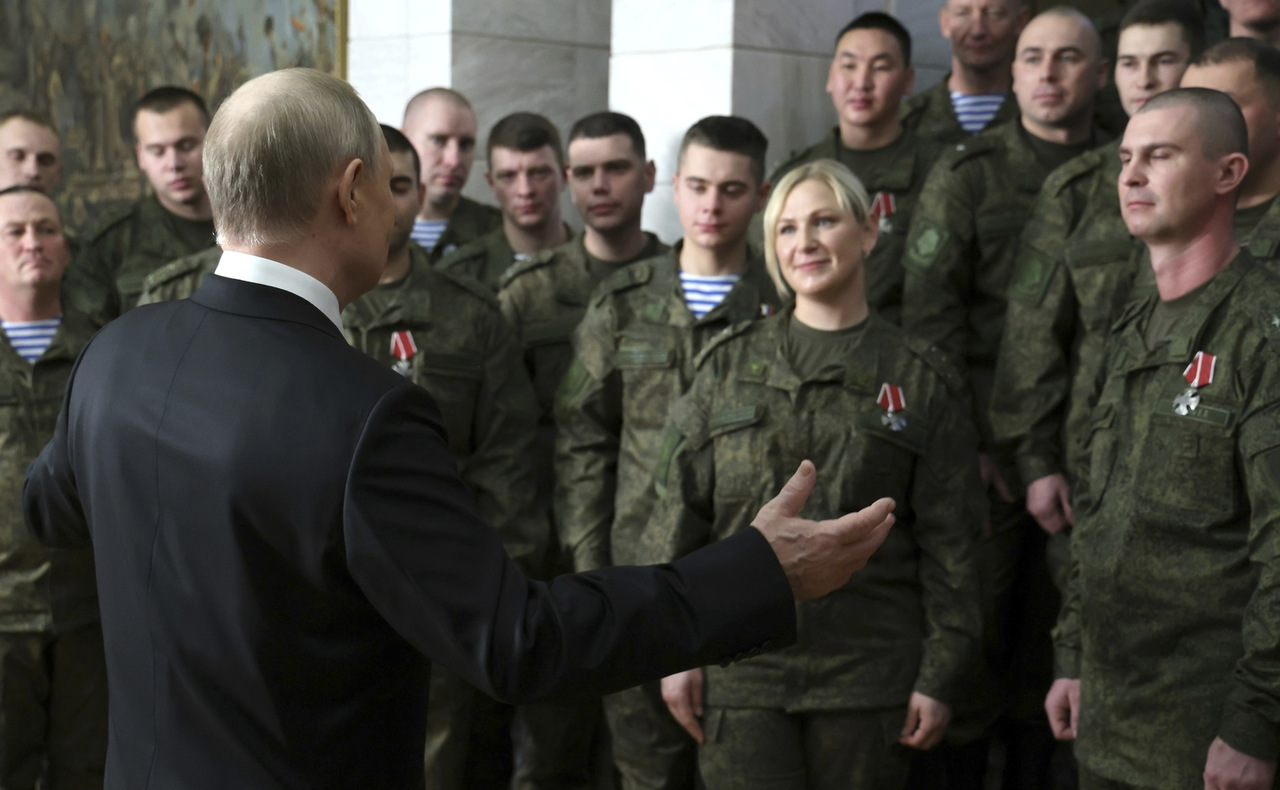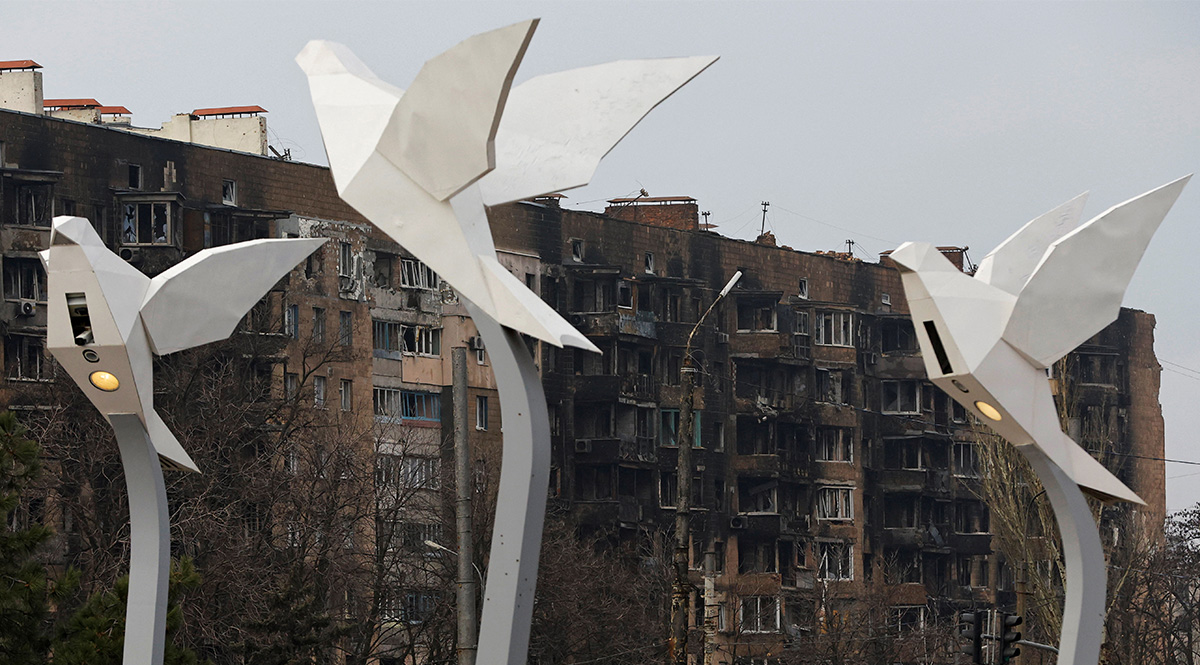Putin Readies Russia for the "Long War"
The Russian authorities prepared for a long-lasting conflict with the West and perceive the war with Ukraine as its first stage. The militarisation of social and economic life in Russia has further strengthened Vladimir Putin’s power without social unrest. Russia still has the financial resources to endure at least two or three more years of military action in Ukraine. With its allies, Poland must prepare for a long confrontation with Russia by building up its own military capabilities and the public’s resilience to Russian destabilisation efforts.
 Mikhail Klimentyev/Kremlin Pool / Zuma Press / Forum
Mikhail Klimentyev/Kremlin Pool / Zuma Press / Forum
Russia’s War Mobilisation
In recent months, the Russian authorities’ decisions indicate their preparations for a long-term war effort. Compared to last year, official military spending has increased by more than 60% to more than $150 billion and will amount to more than one-third of this year’s budget, the equivalent of more than 7% of Russian GDP. In line with rising spending, Russian defence companies are expanding production lines and increasing employment, with workers being forced to work extra shifts. Production gaps stemming from manpower shortages are being filled by arms supplies from abroad, including from Iran and North Korea.
The Russian armed forces are undergoing structural changes to improve their combat effectiveness and operational readiness. An automated system for registering citizens with military commissions has been introduced. In an effort to increase the size of the army, the authorities have also created a system of financial incentives for volunteers wishing to join its ranks. Foreigners who decide to take part in the war in Ukraine on the Russian side are additionally offered fast-track Russian citizenship for their families. The regime is consistently setting the ideological ground for a confrontation with the West, promoting a negative image of it in Russian society and reinforcing the threat that EU and NATO countries aim to destroy Russia.
The War in Ukraine and Russian Politics
The ongoing war with Ukraine is a primary factor cementing the Russian power elite together. For groups loyal to the regime, the war has brought new sources of revenue in the form of arms contracts for the Russian army and infrastructure investments in occupied Ukrainian territories. As a result, the combined wealth of the richest Russians, per Bloomberg Billionaires Index, increased by more than $50 billion in 2023. The war also presents an opportunity to increase the already existing privileges for Russia’s secret services and law enforcement bodies on which the stability of the Putin system is based, especially after last year’s revolt by Yevgeny Prigozhin.
A new social contract between the Russian regime and society has also centred on the war effort. Joining the army allows the average Russian to earn as much as 12 times the minimum wage per month (between 220,000 and 250,000 roubles, or about $2,500-2,850), which translates into a significant improvement in the material conditions of many Russian families, especially in poor regions of the country, far from the capital. The war effort also creates a sense of participation in a milestone event, along the lines of the mythology of the Great Patriotic War. Backed by propaganda, the authorities have managed to convince the majority of Russians that the war (officially in Russia still called a special military operation) is defensive and preventative. This increases the widespread sense of threat and rallies the society around the leader. The Russian authorities are thus creating a new founding myth of the state in order to compensate for—and justify—the increasing repression and loss of civil liberties such as the freedom of assembly or speech, especially criticism of the war.
Rather than weaken the regime, the invasion of Ukraine consequently has strengthened the system of power led by Putin. Surveys by the Levada Centre show that support for him remains at around 80%, compared to before the invasion when it was just over 60%. However, the future of the regime is increasingly becoming dependent on its ability to maintain a war economy.
The War and Russian Foreign Policy
Russia’s strategic objective remains to change the current international order from one based on the leadership of the United States, seen as the main adversary. Russia has consistently sought to regain its status as a global power and create a new security system in which the principle of the sovereign equality of states would be replaced by spheres of influence. In the view of the Russian authorities, only superpowers are fully sovereign and therefore have the right to influence the policies of their smaller neighbours. The invasion of Ukraine is their primary instrument for achieving this goal. It constitutes a forcible attempt to enforce an alleged Russian sphere of influence, while also aiming to reduce the U.S. military presence in Europe, especially on NATO’s Eastern Flank.
Failure of the plan to quickly subjugate Ukraine has not forced a revision of the Russian objectives. The short-term priority of the Russian government remains the consolidation of control over the newly occupied territories in the east and south of Ukraine, and the rebuilding of its own military potential with a view to resuming a large-scale attack on Ukraine. From the Russian point of view, the protracted war also plays a part because it weakens materially and financially not only Ukraine but above all the United States and its allies. For this reason, contrary to its public rhetoric about peace, Russia is not interested in a real end to the war, and the–false–signals of readiness to negotiate it sends are calculated to reduce foreign support for Ukraine and give an argument to opponents of increased military spending in Europe.
Perspectives and Recommendations
The expansion of the Russian war economy and the government’s actions in the ideological sphere indicate that they are preparing for a long-term confrontation with the United States and its allies. The invasion of Ukraine is seen as its prelude and represents for Russia a proxy war against the West. So far, there are no credible signs of a real willingness on Russia’s side to engage in substantive talks over Ukraine, let alone negotiate with Ukraine directly. For Russia, any freezing of the conflict would only be temporary and by tactical considerations or a logistical hurdle.
Russia’s ability to sustain a long-term conflict with the West is predicated on the fundamental assumption that EU and NATO states lack the long-term political will to bear the financial costs of this confrontation. The prolonged adoption in the United States of another support package for Ukraine reinforces the Russian elite’s belief that this assumption is accurate, and that the willingness of Western countries to make concessions will increase over time. Russia itself, thanks to its accumulated financial reserves, will be able to sustain its increasing arms expenditures and continue the war in Ukraine for at least the medium term (2-3 more years).
The Russian system of power will become increasingly repressive towards its own citizens, but an eruption of social discontent is not to be expected, not least because of the benefits enjoyed by some Russians from the ongoing war. Any change in public sentiment in Russia will depend primarily on whether Ukraine and its partners succeed in bringing about Russia’s defeat on the Ukrainian front. Only an apparent military fiasco—especially the loss of control over Crimea—would contribute to a possible split in the power elite and to a weakening of Putin in the eyes of Russians themselves. For this reason, it is essential to equip Ukraine with sufficient military capability to strike at strategic and economic targets on Russian territory as widely as possible. At the same time, for the Russian attitude to change depends on whether the society and power elites will realistically experience the consequences of the ongoing conflict themselves.
Russia’s strategic objectives mean that its interests and Poland’s will remain in conflict for the long term. This necessitates a broader effort in terms of the country’s defence preparedness, including building public resilience to Russia-initiated attempts at destabilisation and provocation. Poland should, simultaneously, seek to further develop its military capabilities and the European defence industry, as well as take additional steps to strengthen NATO’s deterrence and defence potential on the Eastern Flank. Poland might also try to convince partners within the EU and NATO of the need to take proactive, rather than merely reactive, measures to contain Russia. One of these should be to confiscate Russian assets already blocked in EU countries and use these funds to rearm Ukraine and finance its priority reconstruction needs.






